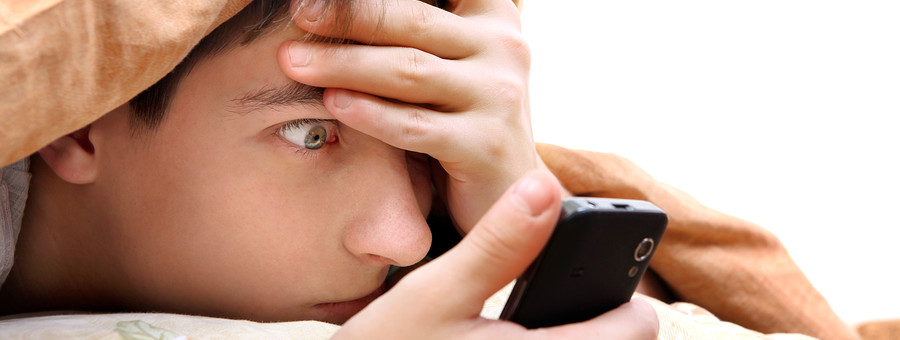While the medical world is still catching up with internet addiction, the very real consequences of spending too much time with our screens are readily apparent in many households. In the absence of strict definitions and forms of treatment, what can you do to protect your teen from the darker side of our data-connected world?
Shared symptoms
Unsurprisingly, internet addiction seems to share many symptoms with other forms of addiction. Pleasure centers in the brain light up when introduced to stimulus and the addicted person quickly loses interest in any outside pastimes, socialising and hobbies. When access is denied to their addiction for any period of time, internet-addicted people also experience withdrawal, manifesting in irritability and potentially depression.
Unfortunately, there is still relatively little concrete data on how to diagnose and treat this disease. It’s possible that internet addiction is a broad term for many specific issues or part of one or more existing conditions. Before jumping to conclusions, it’s best to learn as much as you can about the addicted person’s experience, and why the internet might provide such an allure.
Coping with smartphones
As the most accessible internet device, smartphones represent a core problem for parents who want their kids to have communication access, but remain free from the lure of addictive content. Known in some circles as ‘nomophobia’, smartphone addiction is a plight affecting many young people.
If excessive social media is a way for your adolescent to cope with stress or poor social skills, learning techniques for coping without the device may go a long way toward promoting healthier behaviour.
It can be as simple as turning the phone off at dinner, or leaving it off or away from the bedroom. Reading a book on your phone might drive you to distraction with the incessant beeps and notifications, so pick up a real book instead.
You should also teach your child best practice internet safety rules, to ensure that when they are online that they are as safe as possible from the external dangers of internet use.
Feel the fear and (don’t) do it anyway
Fear of missing out (FOMO) is a term used (sometimes ironically) to describe our compulsion to want what everyone else has, be in more places, socialise and interact more and more.
Social media is a trigger, as are news services and other notification-driven events that create an unrealistic expectation of real life on the Internet. With so many apps and web services pushing content at us 24/7, sometimes using experimental psychology to draw us in, it’s easy to see why young minds can be driven to distraction with feelings of missing out, jealousy and even depression when we can’t match reality to impossible expectations.
Acknowledging that you can’t be on top of everything is probably the best lesson both young people and parents alike can learn from this. On the flip side, the internet pretty much guarantees there will always be another sale, another event, and other food trends, Pokemon game or cat video. So even if you are missing out this time, another opportunity is right around the corner.
Consult with your family doctor
Medical professionals are trained to deal with addictions of all types and can provide referrals where needed. CRCHealth suggests family therapy, arts therapy and Cognitive Behavioural Therapy as potential options for Internet-addicted people. Consult with your doctor, and work together to find the best solution for your children.

















































































































































































